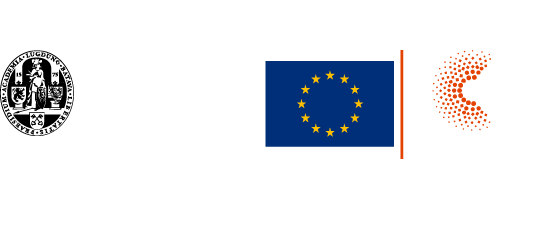
At the European International Studies Association Pan-European Conference (EISA PEC) 2024, Ruben van de Ven and Cyan Bae are organising an Early Career Researchers Workshop (ECW) Motion Technologies: Socio-technical Practices For Securing Bodies In Movement, to take place on 27 August 2024 in Lille, France.

In security practices, bodies in motion—both people and objects—are tracked, archived, and circulated. Pedestrians are profiled in local shopping malls, ships tracked at world seas, facial expressions analysed in cramped interrogation rooms, gestures assessed at public television, status updates swiped at social media, code revisions monitored at software platforms, and steps counted at insurance companies.
In this workshop, we want to bring together scholars from different disciplines to explore the politics of such motion technologies. We deem it no longer sufficient to think of movement as denoting the displacement of people from one space to another, which finds its most essential form in the figures of the diaspora and the migrant. Contemporary techniques and technologies for analysing and disseminating movements push us to instead think of movement as a (dis)continuous traversal of space, in terms of pathways (Huysmans, 2022). We therefore want to shift away from a static and binary understanding of the subject of security—such as the insider/outsider—and foster a more liminal understanding of those being surveilled.
We are interested in contributions that raise questions on:
the (micro-)temporalities of movements, examining how motions are governed in terms of discontinuities and rhythms; going beyond an understanding of movement in terms of continuous flows of people or goods, instead building a more fine-grained comprehension of the moving subject.
the prediction and pre-emption of motion as a means to institute suspicious or risky bodies, such as contributions that inquire the statistical or affective generation of foresight; or how motion technologies corporealise targetable bodies (Wilcox, 2016), recognising these technologies in terms of their materiality and embodiment.
how motion technologies not only block, but also enable, shape and cramp (Walters & Lüthi, 2016) movements. This includes contributions that explore a politics of space and friction, advancing the discussions on the control over motion beyond a rhetoric of borderzones and boundaries in terms of fences and walls.
the perpetually changing (‘updating’) algorithms through which security technologies operate. Contemporary security technology is no static object, as over-the-air updates can continuously change their algorithmic functioning, forcing us to study matter-in-motion.
how motion technologies are not always effective and seamless, but fail and are contested.
We are interested in studies of all practices involved in motion technologies: their development, their deployment, their retirement, and the blurry boundaries in-between.
We invite early career researchers who engage with varied methods in studying such questions. Here, we wish to also discuss methodological challenges and alternatives to study motion technologies, or how to make sense of their matter in motion. We welcome both written contributions, as well as those engaging in multimodal methods, such as (audiovisual) ethnography, technography, and artistic practice.
We welcome contributions that draw from law, anthropology, sociology, STS (ANT/post-ANT), critical security studies, media studies, feminist technoscience, software studies, political geography, critical migration studies, gender studies, and performance art.
How to participate:
To be accepted to the workshop, please send in an abstract (max. 270 words) for a (draft) paper, thesis chapter, or “thinking piece” to both convenors: Ruben van de Ven, PhD candidate in International Political Sociology, Institute of Political Science, Leiden University (r.r.van.de.ven@fsw.leidenuniv.nl) and Chaeyuen Bae, PhD candidate in International Political Sociology, Institute of Political Science, Leiden University (c.bae@fsw.leidenuniv.nl).
All workshop participants are expected to participate in the EISA-PEC main conference, and have to be registered for the conference before attending the workshop. Accommodation costs (up to two nights) will be reimbursed for workshop participants to cover the early arrival at the EISA conference.
Deadline: 1 May 2024
ECWs are one-day workshops organised by and for doctoral students and postdoctoral researchers who finished their PhD in less than three years.

 The Algorithmic Security
The Algorithmic Security 